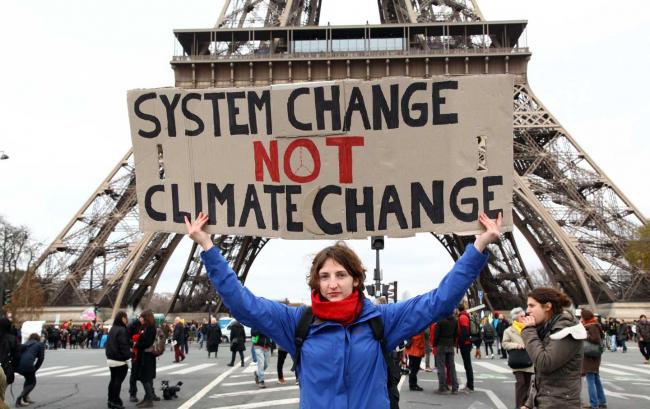Articles Menu

EDITOR'S NOTE: This article has been updated to reflect the author’s further reflections after the end of the summit.
Thanks a lot, Republicans. You weren’t in Paris physically, but you still managed to grievously weaken the landmark agreement reached at the global climate summit. On one hand, it is amazing and inspiring that virtually all the world’s governments approved a plan to address an existential collective threat by pledging to leave behind the fossil fuels that are the foundation of modern economies and are controlled by some of the most powerful corporations and nation-states in history. Naming 1.5 degrees Celsius as a goal for the eventual maximum temperature rise was a stunning diplomatic victory for the world’s poor and vulnerable countries. And people of all nations will now take heart that meaningful climate action is possible, which will lend further momentum to the proceedings. Nevertheless, on both scientific and humanitarian grounds, Democratic presidential candidate Bernie Sanders is correct to say that the Paris agreement “goes nowhere near far enough.” And the main reason it doesn’t is his GOP colleagues in the Senate, which would have had to ratify a bona fide treaty.
The Paris summit’s accomplishments deserve the adjective “historic.” By aiming to limit temperature rise to “well below” 2°C above pre-industrial levels and “pursue” a goal of 1.5°C, the world’s governments went further than ever before in aligning policy with climate science. What’s more, both developed and developing nations pledged to peak greenhouse-gas emissions “as soon as possible” and to decarbonize the global economy. President Obama hailed the deal as not “perfect” but “the best chance we’ve had to save the one planet we’ve got.” A Guardian headline heralded the agreement as the “end of [the] fossil fuel era.”